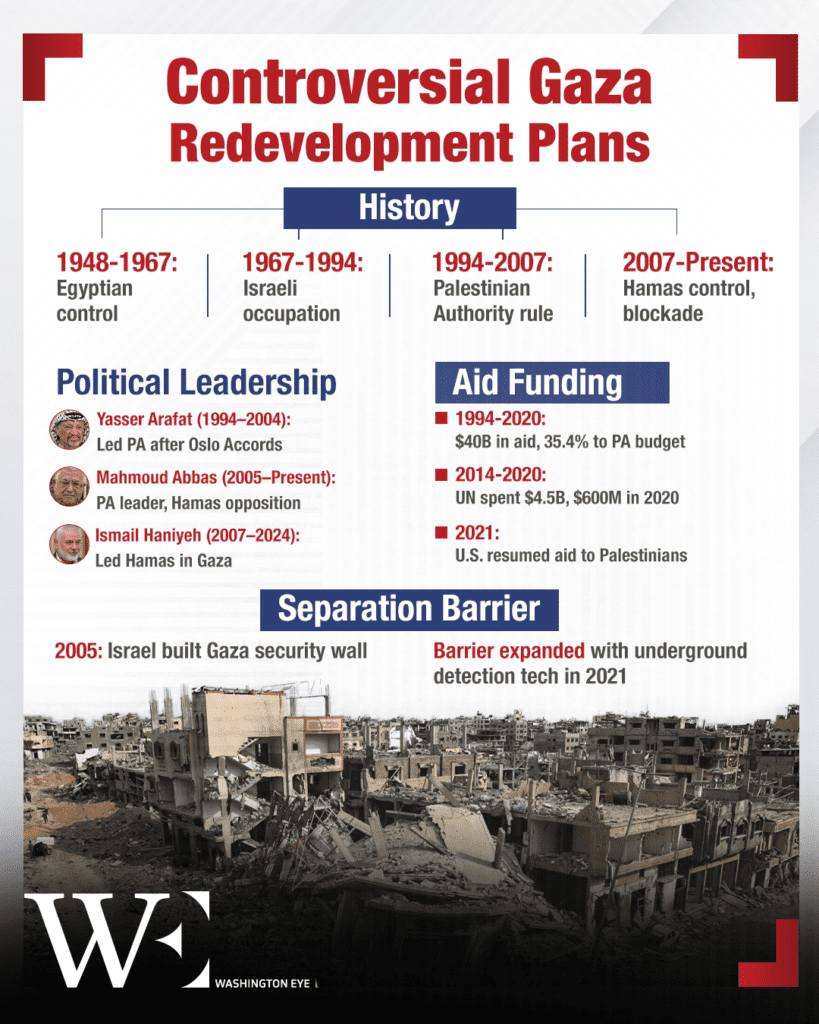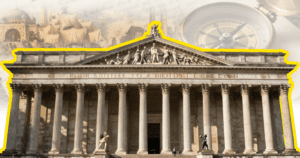In a development that has sparked intense debate and raised concerns worldwide, the Gaza Strip’s controversial redevelopment plans were announced earlier this month igniting widespread reactions from governments, human rights groups, and international organizations.
The Gaza Strip, which has been under Israeli control since the 1967 Six-Day War, has long been a hotbed of political tensions, poverty, and instability. Decades of ongoing conflict, a blockade imposed by Israel, and intermittent military operations have left much of the region in ruins. The humanitarian crisis in Gaza is dire, with over 2 million people living in cramped conditions, lacking necessities like clean water, electricity, and medical supplies.
Amidst this ongoing struggle, redevelopment plans for Gaza’s infrastructure, including housing, schools, hospitals, and roads, have emerged as a point of contention. The announcement was made by the Israeli Ministry of Defense on February 14, 2025, outlining a long-term proposal aimed at rebuilding Gaza’s devastated infrastructure. According to officials, the plan intends to provide the necessary resources to restore Gaza to a level of functionality that would allow for sustainable living conditions and economic growth.
The Ministry claims that this initiative is a humanitarian gesture aimed at reducing tensions and improving living conditions for Palestinian residents in Gaza. However, the details of the plan have sparked concerns over its potential to further inflame the already volatile situation in the region.
Key Aspects
The redevelopment plan includes provisions for the construction of new housing units, schools, hospitals, and roads, as well as the restoration of essential utilities such as water and electricity. It also proposes the development of a new industrial zone to help create job opportunities for the local population, which has suffered from high unemployment rates and a lack of economic opportunities.
Israeli officials argue that the redevelopment effort will help stabilize the region by improving living conditions and reducing the incentive for armed groups like Hamas to engage in violence.
They further emphasize that the project is designed to be carried out in coordination with international aid organizations and will include rigorous oversight to ensure that funds are used appropriately.
However, critics argue that the plan is little more than a thinly veiled attempt to solidify Israel’s control over Gaza and manipulate its demographic makeup. According to sources within Palestinian political factions, the plan fails to address the root causes of the conflict and may lead to further displacement of Palestinian families, further entrenching Israeli control over the region.
Reactions from Palestinians and International Concerns
Palestinian leaders have been vocal in their condemnation of the Gaza redevelopment plans. The Palestinian Authority (PA), which governs the West Bank, has described the initiative as an affront to Palestinian sovereignty.
“This plan is an extension of Israel’s ongoing occupation of Palestinian land,” said Nabil Abu Rudeineh, a spokesperson for Palestinian President Mahmoud Abbas.
“It is an attempt to redraw the map of Palestine by creating a dependent and fragmented Gaza that will be under Israel’s control, rather than truly allowing Gaza to rebuild itself independently.”
The Hamas-led government in Gaza also expressed strong opposition to the initiative, labeling it a “colonial project” that disregards the needs and desires of the Palestinian people.
“We will not accept any foreign-led efforts that undermine our sovereignty or our right to self-determination,” said Sami Abu Zuhri, a senior Hamas official.
The plan has also raised alarms among Palestinian residents of Gaza, many of whom are skeptical of Israel’s intentions.
“We have seen countless promises over the years, but nothing ever changes. All we get are more walls, more checkpoints, and more control,” said Mohammad Al-Hussein, a resident of Gaza City.
“We want our land back, not more destruction masked as redevelopment.”
The announcement has attracted mixed reactions from the international community. While some Western governments, including the United States, have voiced support for the initiative, emphasizing the potential for peace through economic development, others have raised significant concerns. Human rights groups, including Amnesty International and Human Rights Watch, have expressed deep reservations about the plan.
They argue that the redevelopment initiative ignores the ongoing humanitarian crisis in Gaza and fails to address the root causes of the Israeli-Palestinian conflict, such as the continued occupation of Palestinian territories and the blockade that restricts the movement of people and goods.
“The proposed redevelopment plan does not take into account the needs of Gaza’s residents or their right to self-determination,” said Heba Morayef, Middle East Director at Human Rights Watch.
“Until the Israeli government lifts the blockade and allows for free movement, any efforts to rebuild Gaza will be futile and amount to nothing more than a façade of peace.”
Meanwhile, some countries in the Arab world, including Turkey and Qatar, have criticized the plan, calling for greater Palestinian involvement in any future redevelopment efforts.
These nations argue that any meaningful solution must prioritize Palestinian sovereignty and address the broader political context of the Israeli-Palestinian conflict. The United Nations, which has long been involved in providing humanitarian aid to Gaza, has called for further consultations with all relevant stakeholders before proceeding with the initiative. UN Secretary-General António Guterres emphasized that any redevelopment plan must be based on respect for international law and Palestinian rights. As the debate surrounding Gaza’s redevelopment plans intensifies, the situation remains fragile. Many experts believe that any attempts to rebuild Gaza will ultimately be unsuccessful unless there is a broader peace agreement between Israel and Palestine.
Without addressing key political issues, such as the status of Jerusalem, the right of return for Palestinian refugees, and the cessation of settlement expansion in the West Bank, any infrastructure projects may only serve to perpetuate the status quo. For now, the future of Gaza remains uncertain, and the world watches closely as these redevelopment plans unfold.
What is clear, however, is that the struggle for peace and justice in the region is far from over, and the road ahead will be anything but easy.

Daily euro times
















